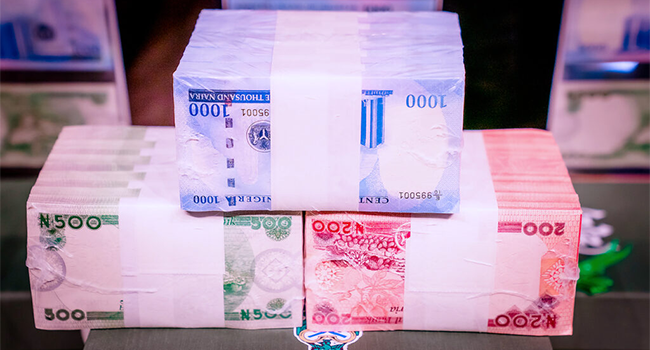The Federation Accounts Allocation Committee (FAAC) on Tuesday said it shared N3.879 trillion to the Federal Government, States, local government areas, and other statutory recipients in the first half of 2020.
In a statement by the committee’s Director, Communications and Advocacy, Orji Ogbonnaya, the Federal Government received a total of N1.53 trillion while the states got N1.29 trillion and the 774 local government areas received N771.34 billion.
Mr Orji stated that the figures, based on the latest edition of the quarterly review of the Nigeria Extractive Industries Transparency Initiative (NEITI), were very volatile.
Giving a further breakdown, Mr Orji explained that the N1.53trillion received by the FG in H1 2020 was 4.28% lower than the N1.599 trillion it got in the first half of 2019 and 7.36% lower than the N1.652 trillion it received in the first half of 2018.
Similarly, he stated that it was the same “for states, a total of N1.298 trillion was disbursed in the first half of 2020. This was 2.8% lower than the N1.35 trillion disbursed in the first half of 2019, and 5.6% lower than the N1.375 trillion disbursed in the first half of 2020.
“For local government areas, the 2020 first half disbursements were 2.64% and 3.04% lower than the corresponding disbursements for 2019 and 2018 respectively.”
READ ALSO: Justify The Necessity For Electricity Tariff Increase, Organised Private Sector Tells FG
Mr Orji pointed out that the total FAAC disbursements in the second quarter of 2020 were slightly lower than the N1.945 trillion disbursed in the first quarter of 2020. This aligned with the projections made in the previous issue of the NEITI Quarterly Review which projected lower FAAC disbursement in the second quarter.
He added that the NEITI report attributed the 0.55% decrease in Q2 2020 to a couple of factors, namely: “rebound in oil prices in the second quarter as a result of ease of lockdowns by countries across the world and the adjustment of the official exchange rate by the CBN from N307/$1 to N360/$1 in March resulting in higher naira disbursements.
“Disbursements were very volatile in the first half of 2020, compared to 2018 and 2019. Unlike 2018 and 2019 where aggregate disbursements increased and decreased in successive months, in 2020 they fell for two straight months, increased in one month, and then decreased for two straight months,” he stated.
The NEITI spokesman also disclosed that from January to May 2020, actual government revenue was N1.62 trillion, representing “62% of the expected pro-rata revenue of N2.62 trillion from the revised budget”. That also explained a shortfall of 38% in government revenue for the first five months of the year. As oil prices continue to rise, and with the increased pace of economic activities, NEITI projects that “Government revenue will perform better in the second half of 2020, with the possibility of shortfalls in revenue compared to budgeted figures.”
He stressed that the net FAAC disbursements and deductions for states for the first half of 2020 had wide disparities.
“Total net disbursements received by Delta State (N100.81 billion) were higher than the combined total net disbursements of N99.47 billion received by six states – Osun, Cross River, Plateau, Ogun, Gombe, and Ekiti.
“Also, the combined total net disbursements of N321.29 billion received by the four highest receiving states of Delta, Akwa Ibom, Rivers, and Bayelsa were higher than the combined total net disbursements of N314.08 billion received by 16 states – Osun, Cross River, Plateau, Ogun, Gombe, Ekiti, Zamfara, Kwara, Nassarawa, Ebonyi, Taraba, Benue, Adamawa, Ondo, Bauchi, and Abia”. While Lagos State had the highest deductions, Yobe State had the lowest,” he stated.




